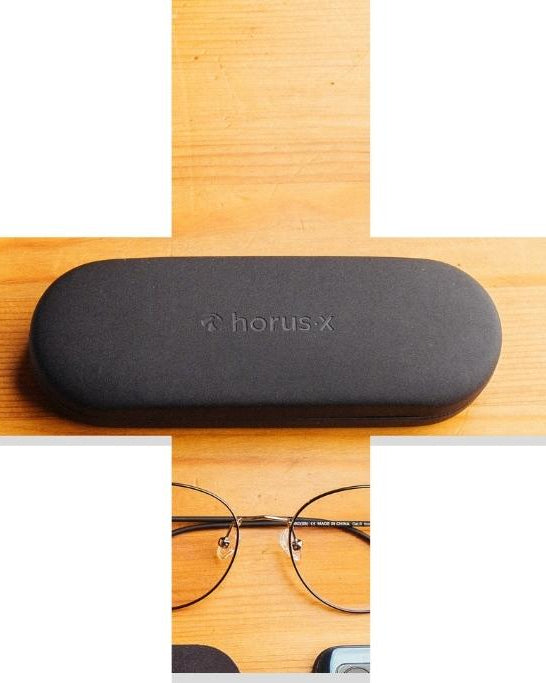TVs, computers, smartphones, tablets… screens are everywhere. You’re looking at one right now to read this.
With such a constant onslaught it’s nearly impossible to keep your little ones away from all the bright colors and lights.
After all, if we’ve sat there binge-watching the final season of Sex Education, we can hardly be surprised when our babies are equally as entranced by the television. Animated images, colors, sounds, buttons on the remote… it’s an extravaganza for a tot.
We are genuinely in danger of becoming like the humans in WALL-E.
That doesn’t mean all screen use is bad; however, exposing babies and infants to screens too early can have harmful and severe effects on their cognitive brain development.
It’s important to know the dangers and whether it’s really okay to sit your baby down in front of yet another episode of Paw Patrol.
When babies and televisions meet
Every parent on the planet (who owns a TV), has put their child in front of it in an attempt to get some long sought after peace and quiet.
Screens are just an easy solution to prevent the oncoming meltdown. Everyone is happy, both baby and parent.
But that doesn’t mean it’s the safest option.
Studies like those by JAMA Pediatrics and the Canadian Pediatric Society have found that there is a link between reduced cognitive development and overuse of screens under the age of 3.
A 2012 study revealed that the average child is exposed to nearly 4 hours of background TV per day between ages 8 months to 8 years old. French body INSERM discovered two out of three children watch TV every day.

All of this is actually against leading medical advice. The recommended daily screen time for children under 3 is a big fat 0 hours per day. Early exposure has a myriad of troubling developmental effects, and that includes the passive exposure they get when you’re busy looking at your phone or television too.
👶 What happens when we leave very young children in front of the television?
During a baby’s first months on this earth, their vision is blurry. Slowly it refines and they start developing object recognition. The more time they have to absorb the world around them, the better it is for this.
When a baby is put in front of a phone or television however, they are stuck starting at something at a static level and distance away. Their focus is solely on the movement of the images and the sounds they can hear. Images are projected, colors are moving, and interesting sounds are coming from the big box in the corner, but unfortunately, baby doesn’t understand any of it.
To develop a child’s cognitive and socio-emotional skills they need to move around and interact with the environment around them.
That means they need activities that are multisensory (use all five senses). They need action, interactivity, and to be around other human beings. This can be listening to their parents, or manipulating objects, for example. This is how babies learn to understand how the world evolves around them.
But if your baby is in front of the television, they’re less likely to seek this play and interactivity. Screens place you in a spectator position, immobile and passive as the world passes on around you.
And no, playing the new Cyberpunk DLC doesn’t count as “keeping up with the world.”

But it’s calming for them!
It’s a common misconception that televisions and screens in general soothe children. Because they’re so captivated by the bright lights, adults tend to assume that means they’re also providing a calming effect.
However, what a lot of people haven’t put together is that these calm periods are normally then followed by a burst of overexcitement and energy. Like they got into the candy drawer when you weren’t looking. You then respond by plonking them back in front of the television… and the cycle continues.
Despite plenty of adverts promoting educational activities as part of watching TV, the best stimulation for a toddler remains interacting with the environment around them.
That’s regardless of the new deluge of educational programming. No matter how tempting it is to just put them in front of the TV for five minutes so you can finally get to that washing up you’ve been staring at all week, it just isn’t worth it in the long run.
Why is TV bad for toddlers? What are the dangers
There’s a reason specialist strictly recommend no television before age 3.
At this young age, your body and brain are still developing and overexposure can have long term harmful effects to cognitive skills and long-term health, including:
- 💬 Cognitive delay: A baby exposed to screens too early is more likely to develop a language delay later. It can also cause problems with attention, memory and concentration.
- 🏃 Poor development of motor skills such as walking, running, throwing or jumping, which are essential for the overall development of a child.
- 🥱 Sleep disorders: The television screen emits blue light, which is often responsible for difficulty falling asleep and sleep disorders. It's even worse if the child watches TV just before going to bed.
- 🤯 Abnormal agitation: By being glued to TV shows, the child may show changes in behavior such as agitation, excitement, or even hyperactivity, in daily life activities.
- 🍫 A risk of being overweight: The more a child gets into the habit of spending hours in front of the TV, the more sedentary they become. Often, the use of screens comes at the expense of physical activities, which considerably increases the risk of being overweight in young children. And of course, snacking in front of your favorite TV program doesn't help!
- 🧐 Other general health problems such as eye strain and fatigue (headaches, vision problems, etc.), poor posture, poor diet, etc.
- 😢 A disconnect with the real world: The more a child watches television, the more they want to watch it all the time. This poor use of screens can be particularly dangerous for a child’s social life. It’s a lot easier for a child to become withdrawn, shy or anxious of interacting with others, and therefore use the screen as a crutch. We must be vigilant with this in particular as it can cause long lasting mental health problems such as anxiety, depression, isolation etc.

Following child psychologist, Serge Tisseron’s 3-6-9-12 rule
This easy to follow rule is a simple set of guidelines for parents to follow when introducing their children to screens.
The goal is to introduce them to them at the right time and in the right conditions. Like so:
- 📵 No screen before 3 years (or as little as possible)
- 🎮 No console and video games before 6 years old
- ❌ No internet before 9 years old
- 🧑💻 Internet from 12 years old but under supervision
The healthiest way to introduce screens is gradually and in a controlled manner. Much like anyone who talks to Bill Murray.
We can start putting our little ones in front of the television by age 3, but it’s important to bear in mind the rules and reduce the risk of overexposure.
Horus X’s practical advice for healthy television and screen use
If your child has made it to 3 without introducing screens then well done! You’re probably doing better than the rest of us.
Now you’ve shown what a great parent you are it’s time to let loose a little and show them what the box in the corner does (aka: the TV).
But make sure you’re following these rules so you can carry on receiving your “Greatest Parent of All-Time” medal.
- 🧸 Choose suitable programs: To get off to a good start, choose a short TV show that’s suitable for toddlers. Make sure they’re neither too long nor too complicated (Peppa Pig and Paw Patrol are ideal here… you might lose your sanity, but they’ll love it.)
- ✅ Define specific times to watch TV: Avoid turning it on in the morning, before going to school and even less during meals or just before bed.
- ⏱️ Limit exposure time: For a child between 3 and 4 years old, the maximum time in front of a screen is 10 to 20 minutes per day, without exceeding 2 hours per week.
- 👪Accompany and monitor: From the moment you put your child in front of the TV, unfortunately there’s no leaving them alone! Sit down, scroll through your phone, and pretend to just love Bluey.
- 🛋️ Avoid having screens in all rooms of the house: The TV is in the living room; you don’t need one in the baby’s room. They’re not old enough to work it yet.
- 😇 Lead by example and reduce your screen time: Maybe this is the reason you’ve been looking for to take up that new hobby, and reduce your own binge-watching sessions.
- 🤓 Protect their eyes with anti-blue light glasses: To limit the damage that blue light can cause, we’ve developed a range of anti-blue light glasses just for kids!

Babies and television: Final thoughts
Screens are a little like a deity. They’re all around us, all the time, and they track our every move. It sounds sinister, but the only real issue is when we overexpose ourselves and our children to them.
It’s almost impossible to keep your child completely away from screens, but we really do recommend keeping a young child away as much as possible to reduce the risk of harmful effects on cognitive and language development skills.
Don’t forget, keep the screens off until your child is at least 3. Their best source of stimulation is you and your environment.
So, let’s all stop making the TV our babysitter. Turn it off, mute your phone, and reengage with the world for a bit. You’ll get to spend quality time with your baby, without being distracted by your latest Snapchat notification.
The best program they can watch, is you!












